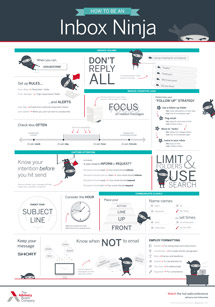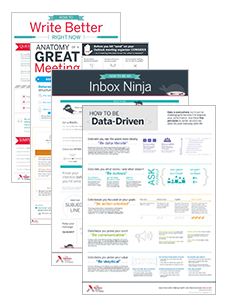Auto logout in seconds.
Continue LogoutEditor's note: This popular story from the Daily Briefing's archives was republished on Feb. 3, 2020.
You've probably got a to-do list—and it's probably too long, too disorganized, and way too stressful. Don't panic: Follow these steps to finally get it under control, Allison Rimm writes for the Harvard Business Review.
The science—and strategy—behind having a 'productive meeting'
Three lists and a calendar
Rimm—who is a management consultant, speaker, and executive coach on productive workplace techniques—writes that when "used indiscriminately," your to-do list can turn you into its "servant."
In particular, many people overload their to-do lists with minor, day-to-day tasks. The result, she writes is that "day after day, we check off the basic items, get the urgent things done (which we probably would have done even were they not on a list) and procrastinate on the other [important] items" that are less time-sensitive.
To finally get your to-do list under control, Rimm recommends that you should actually keep three distinct task lists, as well as a carefully structured calendar.
- List 1 should focus on important, but not time-sensitive projects.
- List 2 should contain items that must be completed by the end of the day.
- List 3 is actually a "not-to-do list" that houses tasks you've decided do not "contribute to accomplishing your goals—your vision of success," and which you will not "get fired or otherwise hurt for not" completing. Keeping such a list may seem unnecessary, but Rimm writes that by deliberately corralling these distracting, unnecessary tasks, you can prevent them from creeping back onto your to-do list.
- The calendar is specifically for "blocking out time to accomplish important matters on schedule." These time blocks should be considered "an unbreakable appointment," Rimm writes.
How to manage your to-do lists
When creating each of your above lists, it's important to ask whether those tasks "contribute to accomplishing your goals" and whether they need to be done by you. If the answer is no, they can be "ditched or delegated and come off your list," Rimm writes.
Once you've assembled all of your tasks into your various lists, Rimm writes that you should estimate how long each task will take to complete. Tasks that are not time-sensitive, but will take a longer time to complete, should be scheduled on your calendar, Rimm writes. This will help ensure you actually do them, rather than postponing them continuously.
If you aren't already in the habit of creating to-do lists, Rimm recommends that you start by listing a few quick and easy tasks. "Accomplishing several simple tasks can build a sense of momentum and keep you moving forward," she writes.
As for your larger, more complex tasks, Rimm recommends breaking them down into smaller "critical success factors" to accomplish one at a time. "Breaking a large undertaking into small, bite-sized tasks can help reduce overwhelm and the resistance that often goes along with that feeling," she writes.
"Time is a finite resource," Rimm writes. "It is important to take a strategic approach to determining how you spend your time if you want to be sure you will achieve your highest priorities" (Rimm, Harvard Business Review, 3/26).
Next, learn ways to be more productive with these 4 infographics
- The anatomy of a great meeting
- How to write better, right now
- Become an inbox ninja with best practices for email management
- Best practice performance improvement—the Advisory Board way
Don't miss out on the latest Advisory Board insights
Create your free account to access 1 resource, including the latest research and webinars.
Want access without creating an account?
You have 1 free members-only resource remaining this month.
1 free members-only resources remaining
1 free members-only resources remaining
You've reached your limit of free insights
Become a member to access all of Advisory Board's resources, events, and experts
Never miss out on the latest innovative health care content tailored to you.
Benefits include:
You've reached your limit of free insights
Become a member to access all of Advisory Board's resources, events, and experts
Never miss out on the latest innovative health care content tailored to you.
Benefits include:
This content is available through your Curated Research partnership with Advisory Board. Click on ‘view this resource’ to read the full piece
Email ask@advisory.com to learn more
Click on ‘Become a Member’ to learn about the benefits of a Full-Access partnership with Advisory Board
Never miss out on the latest innovative health care content tailored to you.
Benefits Include:
This is for members only. Learn more.
Click on ‘Become a Member’ to learn about the benefits of a Full-Access partnership with Advisory Board
Never miss out on the latest innovative health care content tailored to you.


